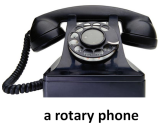题目内容
8.When you are preparing for a job interview,keep it in mind that your clothes should be smart,but _____.( )| A. | confidential | B. | conservative | C. | controversial | D. | contradictory |
分析 考查形容词辨析,句意:当你准备面试的时候,记住你的衣服应该很精干,但又要保守.
解答 答案B,confidential秘密的,conservative保守的,controversial有争议的,contradictory矛盾的,根据句意"当你准备面试的时候,记住你的衣服应该很精干,但又要保守."选B
点评 熟记单词词义.

练习册系列答案
 冲刺100分1号卷系列答案
冲刺100分1号卷系列答案
相关题目
19._______ beyond words,the businessman agreed to donate some money to help the sick.( )
| A. | Moving | B. | Moved | C. | Being Moved | D. | To moved |
3.Jane,I'll be in Room 3discussing with our business partners _____ Mr.Mathews drops in.( )
| A. | so that | B. | if only | C. | in case | D. | as if |
17.__________the truth,we're sure she won't tell a lie.( )
| A. | Whichever | B. | Whatever | C. | Whenever | D. | However |
18.-Taylor Swift accepted the award for Top Female Artist during the 2015Billboard Music Awards in Las Vegas,Nevada May 17,2015.
-You really love her voice,don't you?
-__________!I appreciate her gift for composition.( )
-You really love her voice,don't you?
-__________!I appreciate her gift for composition.( )
| A. | Not exactly | B. | Don't mention it | ||
| C. | Not a little | D. | Don't say so |
 The Wake-up Call
The Wake-up Call